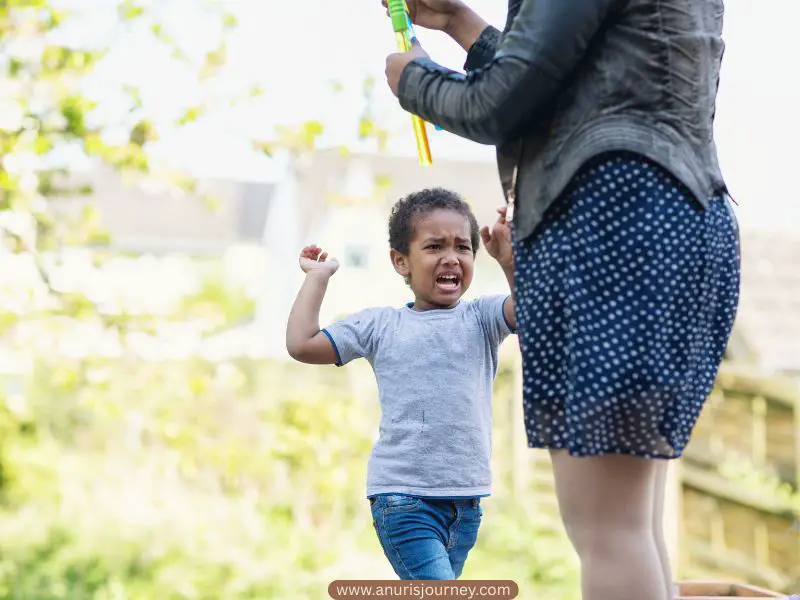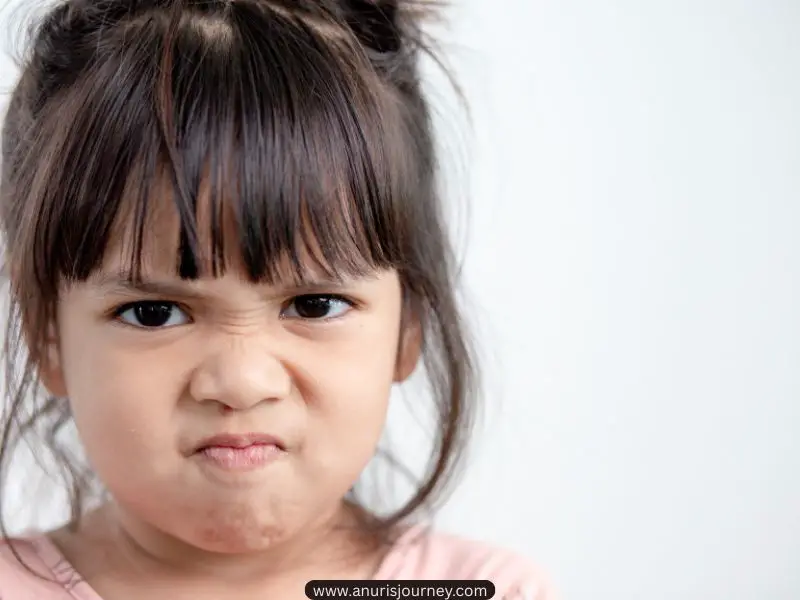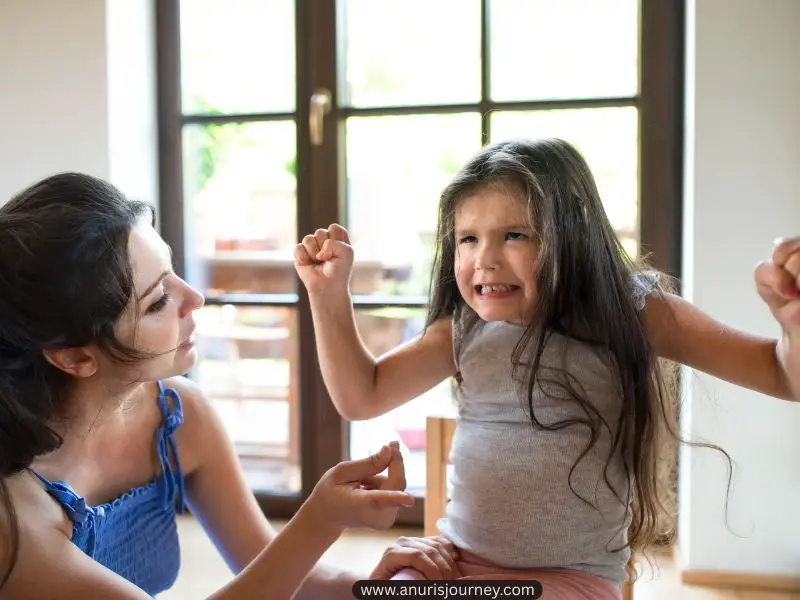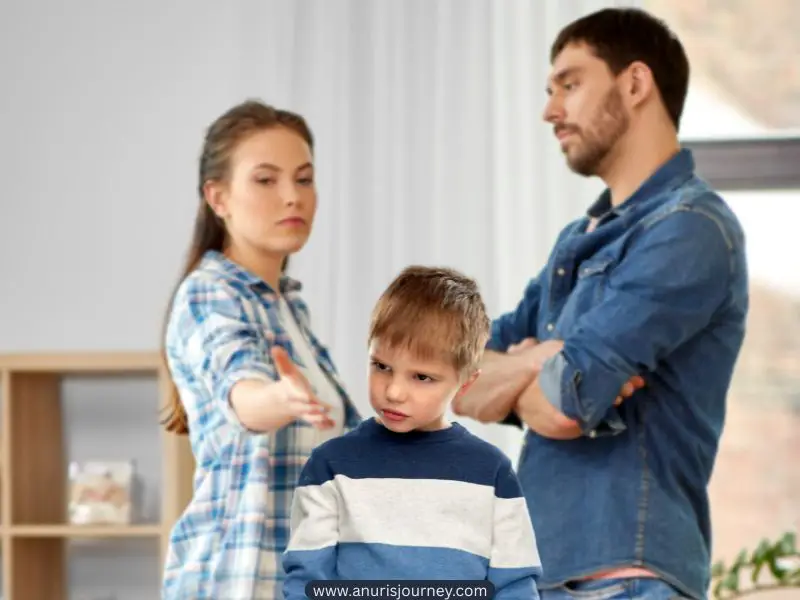Are you struggling with a toddler who keeps hitting? Here is How to Stop Your Toddler from Hitting (Without Harsh Punishments).
As parents, there comes a stage where your child starts using their hands and legs to express their anger. They begin to hit, yell or throw tantrums. It is a phase, a part of child development.
It could be in school when someone refuses to share a toy with them or at home, when their sibling is watching a popular cartoon and they want to watch another channel.
And you will be really disappointed when that sweet child with whom you’ve worked hard to instil good values in, begins to express their anger through hitting and tantrums.
You begin to ask yourself, where did they learn this and question your upbringing as a good parent. This is a story of many parents and they are looking for answers to what went wrong to make their child change so suddenly.
Recently, I went shopping with my girlfriend, Leah and her 2 sons, Joe and Jason. Joe and Jason were 3 and 4 years old respectively. We got to the supermarket and Jason said she wanted ice cream but Leah said he has a cold so he won’t get any today. Jason was so angry that he took the toy in his hand and threw it on the floor, yelling and screaming on top of his voice.
Leah was so embarrassed that a child she trained with so much love was behaving this way, and that too in a public space.
Leah’s experience is common for all parents. At that moment, you feel you have failed in doing your parental duties and you want to use any means necessary to stop such behaviour before it becomes a habit and it will be difficult to let go.
You might even result in spanking and other harsh punishment. But do they stop the behaviour? I don’t think so. That may even make it worse.
Spanking and other harsh punishments may work for the moment compelling them to stop the act or cry but in the long run, it has little or no effect. It doesn’t tell them why hitting is wrong and why that attitude is not appropriate for a child their age.
Most times, it makes the situation worse, either they get angry or scared or even start crying.
The good news is that they are better ways to handle such behaviours, one that is kind, respectful and actually works. It worked for me.
This blog will help you understand why toddlers hit and give you ways to help them express themselves without using their hands.
Understanding the Reasons Behind Hitting

Hitting is one of the ways your child pours his emotion out. This happens when they don’t get what they think they want. Big emotions like anger, frustration and being overwhelmed; they pour them all out through hitting, screaming, biting and being aggressive. There is no better way they know how to express their anger than this.
Toddlers want to feel safe, seen and always want attention. So hitting can be a way to get that attention. And when you shout at them, you have given them the so-called attention.
They don’t know what is right and what is wrong, and they are constantly trying to figure out what is acceptable and what is not. They actually watch how you react when they hit and then observe if there are consequences for their action or not.
Toddlers learn by what they see. They imitate every action they see. They could see a classmate hitting them and they want to mimic them. Because they’re still learning what’s right and wrong, they might just join in.
They are also humans, they can get overwhelmed, exhausted and frustrated by things around them, too many activities or noise. Since they are still trying to develop their self control, they can resort to hitting.
So when we, the parents, understand our toddlers and why they hit, we can help them manage their feelings better.
Effective, Positive Ways to Stop Your Toddler from Hitting
1. Speak calmly but firmly

The moment your child hits someone, you need to step in and stop it immediately. But try to do it calmly. Remove the child from the scene and look for a calm and quiet place for them to calm down and pause. Once calm, talk to them about why it’s not good to hit.
Use calm and simple words that the toddler can understand. Firmly, tell them the reason they should not hit. You can use words like, “No hitting because hitting makes people cry”
Your words should make them understand that their actions affect other people. Be consistent with your reactions. Anytime, they hit, explain to them again and again so that your reaction can sink in and they understand the consequences of their actions.
2. Help them identify and understand their emotions

Whenever you see a change in their facial expression or mood, ask them what the issue is. Make them put a name to what they feel and what happened to make them feel that way. For example, “Are you angry because Jay took your car”?
Give them the right word to express themselves. Use simple words like angry, sad, happy. Continue doing this consistently so they learn to identify their emotions. This is like teaching them a new language.
Doing this opens up the door of communication between you and your toddler. It requires time and patience but it will pay off in the long run.
3. Teach them what to do instead of hitting

Wow, you have succeeded in making them understand their feelings and they need to be able to let that big emotion out without hitting. This is where alternate behaviours come in. Give them other things they can engage in when those feelings build up.
They could stomp their feet, clench their fist or squeeze a toy or doll. These could be alternate ways to release those negative feelings. Calmly give them a choice from these alternatives, this helps them understand that there are other ways to express those feelings.
You can also try redirecting their attention whenever they are heading to a hitting moment. Offer them something exciting to distract them like playing their favorite toys or playing with their toys. It also gives you a chance to help them calm down and process their feelings.
4. Be a good example

Children watch us like television. They soak up everything we do, even when we don’t realize it. They watch how we react to stress, how we handle disagreements, and how we express our own emotions. They learn from how we behave and act.
So if you are angry with your partner or family member, talk about your feelings, they will follow you and do that. If you have a disagreement with someone, let them see how calmly you handle the situation.
Be a role model. When you’ve handled a situation calmly, you can even talk to your child about it later in a simple way; “Remember when I was a little upset because the traffic was bad? I took a deep breath and told myself it would be okay. That helped me feel calmer”.
The more often your child sees you handling situations calmly, the more likely they are to learn. It takes time and effort but the reward for raising emotionally kind and well behaved children is worth it.
5. Pay attention to their well being both physical and emotional

It’s important to ensure your toddler has enough sleep, healthy meals, and a calm environment without too much going on. Have a consistent bedtime and naptime. If your baby sleeps well, he is less prone to getting fussy and hitting.
Have a bedtime and naptime routine filled with warm baths, storytelling in a calm environment filled with lots of cuddling and hugs. Sweet right!!
Give them healthy foods and snacks. Reduce their sugar intake as it can cause them to have a large rust of energy making them grumpy and likely to act out and we don’t want that.
Find out what triggers them to hit, where and when the incident usually occurs. If it happens because they are tired, make them take a nap before that time, if it happens with toys, work on teaching them how to share or get them extra toys.
This tries to find out what causes these outbursts and then shows us how to deal with them and make them happen less.
What Not to Do When Your Child Hits
Yes, once your toddler hits, your first impulse reaction is to react immediately with physical or verbal punishment such as spanking and yelling. This may stop the hitting at the moment but they actually obeyed you out of fear of the physical pain or your reaction, not out of an understanding of why hitting is wrong.
So, here you are telling them that hitting is wrong and you are also yelling and hitting them as a way of correcting their behaviour. What an irony! They will definitely follow in your footsteps as children at that age copy our behaviours.
This may also instill fear in them and make them lose trust in you, straining your parent-child relationship. They may decide not to talk to you about their fears and emotions anymore and that is bad because you need your child to always confide in you at this early stage.
They can also decide to avoid getting caught rather than developing healthy ways to stop hitting. Constantly yelling and spanking them can also lower their self esteem.
So instead of a punishment based approach, those positive ways I listed above are far more effective in the long run.
Keep talking to your child and let them see you doing the right things. It takes time, but with your guidance, they will learn little by little that they can show how they feel without using their hands to hurt.
This is also a really important lesson for life, no matter where they are in the world.
You may also see:
Cluster Feeding: What Is It and How to Cope (Without Losing Your Mind)
How to survive the first 3 months with a baby without feeling overwhelmed